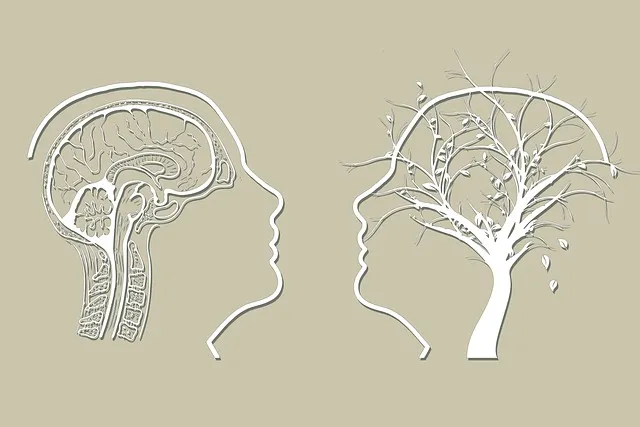The Colorado Springs Kaiser Permanente mental health center is a leading force in improving community emotional well-being through tailored programs and public campaigns addressing stress, anxiety, and depression. They integrate evidence-based practices like Mindfulness Meditation and peer support to humanize mental health issues, encourage help-seeking behaviors, and promote open dialogue. Using a multi-faceted approach combining traditional and digital media, they reach diverse audiences through engaging Mental Health Education Programs. The center continually evaluates its initiatives using KPIs and patient feedback to ensure personalized care and foster a healthier Colorado Springs community.
In Colorado Springs, where the need for mental health support is growing, public awareness campaigns play a pivotal role in fostering well-being. This article explores how organizations like Kaiser Permanente are leading community engagement efforts. We delve into the strategies behind designing effective campaigns, targeting specific audiences, and measuring their impact on mental health initiatives within the community. Discover how these efforts are transforming lives at Colorado Springs’ very own Kaiser Permanente mental health center.
- Understanding the Need for Mental Health Awareness in Colorado Springs
- The Role of Kaiser Permanente in Community Engagement
- Designing Effective Public Awareness Campaigns
- Strategies to Reach and Engage Target Audiences
- Measuring Success: Evaluating the Impact of Mental Health Initiatives
Understanding the Need for Mental Health Awareness in Colorado Springs

In Colorado Springs, the need for mental health awareness is starkly evident, especially within communities served by Kaiser Permanente facilities. With a growing recognition of mental well-being as integral to overall health, the city’s diverse population faces unique challenges that require tailored solutions. Issues such as stress management and anxiety relief are prevalent, exacerbated by the fast-paced nature of modern life. Public awareness campaigns development plays a pivotal role in addressing these concerns, offering guidance and support to those seeking help.
The Colorado Springs Kaiser Permanente mental health center acts as a hub for promoting mental health initiatives, catering to individuals from all walks of life. By integrating public awareness campaigns that focus on stress management and anxiety relief, the center can foster an environment where open discussions about mental health are encouraged. Such campaigns, tailored to the local community’s needs, have the potential to revolutionize how people perceive and manage their mental well-being, ultimately leading to a healthier Colorado Springs.
The Role of Kaiser Permanente in Community Engagement

Colorado Springs Kaiser Permanente mental health center has emerged as a key player in fostering community engagement and promoting emotional well-being. Through various public awareness campaigns, they aim to break down barriers surrounding mental health discussions, encouraging open conversations on issues like stress management, anxiety, and depression. The center leverages its expertise in the Emotional Healing Processes to develop tailored programs that cater to diverse communities.
Their initiatives often incorporate Self-Care Practices as a core component, emphasizing the importance of adopting healthy habits for maintaining mental resilience. By integrating Positive Thinking strategies into their outreach efforts, Kaiser Permanente helps individuals cultivate optimistic perspectives, equipping them with valuable tools to navigate life’s challenges. This holistic approach not only addresses immediate concerns but also empowers community members to lead more fulfilling and balanced lives.
Designing Effective Public Awareness Campaigns

Designing effective public awareness campaigns requires a deep understanding of the target audience and their specific needs. At the Colorado Springs Kaiser Permanente mental health center, for instance, initiatives aimed at promoting well-being must consider the unique challenges faced by the community. Incorporating strategies such as storytelling, peer support, and accessible resources can significantly enhance engagement. By sharing personal narratives and showcasing real-life examples of resilience building, these campaigns can humanize mental health issues and encourage individuals to seek help.
Moreover, integrating evidence-based practices like Mindfulness Meditation and Stress Reduction Methods into awareness programs has proven effective. Incorporating interactive workshops, social media challenges, or community events centered around these techniques allows for a holistic approach to mental well-being. Tailoring messages to resonate with diverse audiences and utilizing multiple communication channels ensures that valuable information reaches those who need it most, fostering a culture of open dialogue and support within communities like Colorado Springs Kaiser Permanente.
Strategies to Reach and Engage Target Audiences

Reaching and engaging target audiences for public awareness campaigns about mental health is a multifaceted strategy. At the Colorado Springs Kaiser Permanente mental health center, they’ve successfully employed a blend of traditional and digital media to spread awareness. By tailoring messages to specific demographics, such as youth, adults, or veterans, the center ensures that each audience receives relevant information presented in accessible formats.
Empathy-building strategies play a crucial role in these campaigns. Mental Health Policy Analysis and Advocacy groups often collaborate with community leaders and influencers who can personally connect with their audiences. Additionally, Designing engaging Mental Health Education Programs that cater to diverse learning styles—whether it’s workshops, webinars, or interactive online content—can significantly enhance knowledge retention and encourage open conversations about mental health.
Measuring Success: Evaluating the Impact of Mental Health Initiatives

Evaluating the impact of mental health initiatives is crucial to understanding their effectiveness and ensuring resources are allocated wisely. At the Colorado Springs Kaiser Permanente mental health center, success is measured through a multi-faceted approach. This includes tracking key performance indicators (KPIs) such as patient satisfaction rates, treatment completion levels, and symptom reduction over time. By comparing these metrics against established benchmarks, the center can identify areas of strength and weakness in its programs.
In addition to quantitative measures, qualitative feedback from patients and their families plays a vital role. Surveys and interviews gather insights into patients’ experiences, perceived benefits, and suggestions for improvement. This information is integrated into risk management planning for mental health professionals, enhancing the center’s ability to deliver evidence-based care tailored to individual needs. Moreover, hosting Stress Management Workshops Organization sessions and providing Crisis Intervention Guidance ensures that both patients and staff receive the support needed to navigate challenges effectively, fostering a holistic approach to mental well-being.
Public awareness campaigns play a pivotal role in fostering mental well-being within communities, and Colorado Springs has witnessed significant progress thanks to organizations like Kaiser Permanente. By designing engaging initiatives targeting specific audiences, these campaigns can effectively reach individuals in need. The success of mental health efforts in Colorado Springs is evident through the community’s increased understanding and reduced stigma, ultimately leading to improved access to resources at local Kaiser Permanente mental health centers. Continued collaboration between healthcare providers and community leaders is essential to sustain and expand these positive changes.
